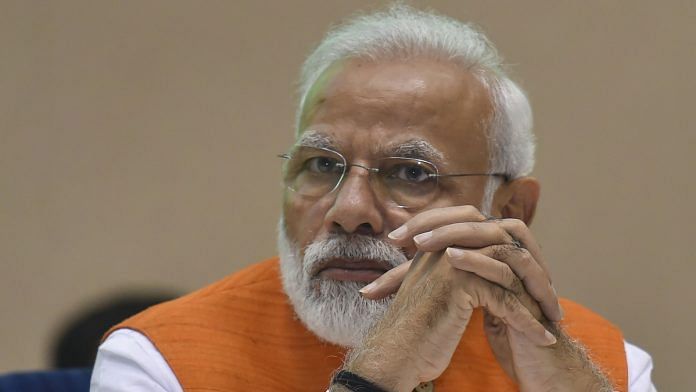India must resist China’s Tibet plan
Amitabh Mathur | Former adviser to Ministry of Home Affairs on Tibetan matters
Hindustan Times
Mathur writes about the Tibet issue in view of Chinese President Xi Jinping’s forthcoming meeting with Prime Minister Narendra Modi in India.
The informal summit comes in the backdrop of China’s criticism of Indian action in Jammu and Kashmir and reiteration of its claims on all of Ladakh.
While Tibet may not part of the meeting’s agenda, Dharamsala would be closely monitoring it over apprehensions that India’s support for its cause is waning, writes Mathur. China has already made it clear to India that its inability to recognise a Chinese candidate for the next Dalai Lama will hamper bilateral ties. China believes installing its own Dalai Lama will demoralise Tibetans and fragment them “into ineffectual uncoordinated groups”, he writes.
New Delhi should not consider these demands, recommends Mathur, in the hope that these might remove obstacles to border settlements and “normalise relations with China”. To strengthen negotiations with China, India should ascertain the Dalai Lama’s wishes on reincarnation and act “proactively to ensure these will be endorsed by not just the Tibetans but the Buddhist world at large”.
PM Modi should also look to facilitate a meeting between Jinping and the Dalai Lama, adds Mathur.
Shyam Saran | Former foreign secretary, and senior fellow, CPR
Business Standard
The current BJP regime under Prime Minister Narendra Modi wants to distinguish itself from its political predecessors as a “new political elite” representing an “authentic and home-grown social and cultural Indian reality”. It does this by deliberately “downgrading” the English language’s role in social and economic advancement, writes Saran.
Institutions, norms and processes built by old parties are now dismissed as being elite, and are being dismantled or transformed. But there is no indication of what the new alternative model will be. This is a government that “prides itself on strong leadership” but also suffers a “lack of coherence”, writes Saran.
The Modi government has been deflecting public concerns about the economic slowdown and lack of jobs with strong PR that denounces critics as the “Lutyens elite”, and othering minority communities as “termites”.
“How long will this strategy of political deflection continue to work?” asks Saran.
The government wants India to be at the forefront of the world, but the English language and access to advanced educational institutes are crucial for that. The old versus new elite is hampering India’s goal of achieving “great power status”, he concludes.
Krishna Kumar | Professor of education, University of Delhi, and former NCERT director
The Indian Express
Kumar writes about the “larger social reality” reflected in the recent killing of two Schedule Caste boys in Bhavkhedi village in Madhya Pradesh’s Shivpuri district.
A formal inquiry into the case is likely to move along two lines, he writes. The first will be the “local history of relations” between the scheduled caste families and the higher “other backward classes”, as the perpetrator belongs to the latter. The second will look at the anger he felt upon seeing two children defecating by the roadside.
The judicial verdict will probably not cover “the deeper ground this incident reveals”, writes Kumar. The case also offers another perspective — the murderous rage seen amid the national effort against open defecation as something “new”.
Kumar writes that visits to the MP school reveal caste discrimination is “routine and real”, and is part of school governance. “The truth of Bhavkhedi is that there is more hatred around than we realise,” he adds.
China has pulled ahead of India on far more than the economy
Niranjan Rajadhyaksha | Member, academic board, Meghnad Desai Academy of Economics
Mint
Rajadhyaksha writes that if India is to improve the livelihood of its citizens it must maintain sustained and rapid economic growth for at least the next 20 years. Economic and social factors are interlinked, he explains. He shows this by tracing China’s “economic transformation” in the last 70 years.
In comparison to India, China is about a dozen years ahead in terms of GDP growth, average incomes and the size of its economy, but “the gap in social indicators are far larger”.
Looking at births attended by skilled health workers, stunting among children and access to sanitation, China improved these conditions years ago while India is still in the midst, he writes.
“…rapid economic growth will not be sustainable unless there are investments in human capital, especially if the country’s demographic dividend is to be meaningful,” adds Rajadhyaksha.
Manish Sabharwal | Chairman, Teamlease Services
The Indian Express
According to Sabharwal, economic reforms introduced over the past 25 years, including delicensing, Aadhaar, among others, are “strong foundations” for a $5-trillion economy but “a new human capital regime for India’s 20 million civil servants” is required for a $10-trillion economy.
“Prosperity needs productive firms and workers,” he writes, but in India “hostility to private enterprises” by “toxic civil service thought-worlds like prohibited till permitted, know-it-all rather than learn-it-all” handicap labour and capital.
Sabharwal suggests reforms in six areas of the civil services — structure, staffing, training, performance management, compensation and culture.
He recommends the following measures — in structure: reducing the number of PSUs and departments in ministries and a pyramid structure; staffing: eliminating the strength gap and creating “cognitive diversity and competition with 20 per cent lateral entry”; training: restructuring courses and continuous learning; performance: “forced curve for appraisals” and retiring people at 50; compensation: monetising benefits and incremental salary; and finally in culture: tackling corruption and instilling a “fear of falling and hope of rising”.



